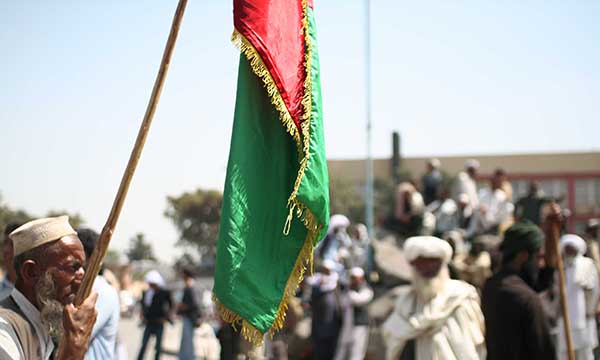Afghanistan’s economy deserves to occupy the top of the agenda of the international community. Afghanistan along with the security and military transition that is in the offing also needs an economic transition. Without giving due attention to this imperative, Afghanistan risks a descent into an economic abyss that would severely undermine if not shatter the prospects for a post-2016 Afghanistan that moves in the right direction. The way forward would include reinvigorating Afghanistan’s National Development Strategy (ANDS), committing resources towards accomplishing the major milestones set out in this important national document and aligning national and international efforts in this direction. Development of Afghanistan’s private sector would require much more than just hand-out of a few projects to a few Afghan companies and private firms in the name of “local procurement”. Strategic and critical sectors in the economy should be identified and internal and external assistance directed towards development of these sectors. What would be crucial is to build capacities. The human resources needed for a transforming Afghan private sector would be a necessary component of the overall efforts.
The strategic and crucial sectors of Afghan economy, of course, go well beyond only the mining and strategic sectors. This sector is often cited as the only promising sector within Afghan economy that is capable of producing mass employment and generating windfall revenue for a cash-strapped government. The reality is that, given the potentials of Afghanistan, it is only one sector that can deliver sustained and considerable economic outcome. What lies ahead is important for Afghanistan. It is now that we are witnessing significant disengagement by the international military coalition. This would imply reduced military-related spending – that is so crucial for the Afghan economy at present.
The Small and Medium Enterprises (SMEs)
Afghanistan’s small and medium enterprises hold the key to the future economic development and growth in this landlocked and capital-deficient country. In a country where the rate of capital flight out of the country is one of the highest in the world, development of the country’s small and medium enterprises would hold the key. It is important that Afghanistan can create a conducive business environment in which small and medium enterprises can grow and prosper. In most of the countries around the world, this sector is credited with creating the bulk of the employment. In countries from Asia to Africa and Latin America, it is the SMEs that form the backbone of the economy and provide livelihoods to billions of people. The under-developed and resource-constrained economy of Afghanistan has a structure largely similar to these countries. Development of a vibrant and thriving private sector would not be possible without giving due attention to this vital sector of the economy.
The problems faced by Afghanistan’s nascent and challenged SMEs are many and diverse. They range from lack of access to capital or affordable capital to regulatory and government-related constraints that are a burden to their viability. Afghanistan would be ill-prepared for the inflow of foreign investment if it fails in supporting its own small and medium enterprises. In other words, as long as the local SMEs grapple with a multitude of challenges that sap their viability, it would be naïve to believe that potential foreign investors would find a positive view of the business environment in Afghanistan.
What is required is a new vision and the substantive political will on the part of the country’s policy-makers and public administrators. Strategic thinking and initiative should permeate every level of governmental decision-making apparatus. With an anemic, inertia-ridden and archaic governmental apparatus, it would be impossible to set the bar high enough for the economy and its sectors and participants to become competitive on a regional level.
It is expected of the international community particularly the U.S., China, Germany, Japan and other partner countries to place the development and consolidation of Afghan private sector at the heart of their efforts to assist Afghanistan in the current situation. Experts and commentators have a near-unanimous consensus that Afghanistan’s economy is set to suffer a deep recession. In order to mitigate the adverse impacts of the period of transition, constructive actions should begin right now and domestic and international resources mobilized. An economic recession would have deeply negative impacts on the country’s ability to overcome the challenges of transition. Furthermore, it would provide the Taliban and other detractors of the Afghan government with opportunities to expand their sway over civilian populations. The post-2015 Afghanistan will inevitably see an intensification of the insurgency with many areas in the country becoming heavily infested with insurgent presence and activity. Under such circumstances, an economic recession would deeply impact the people’s perception and the ability of the insurgency to expand its sway in the rural swaths of the country particularly in the east and south.
The probable impacts of a recession will not be limited to the complication of the ongoing insurgency. A deep recession would wipe out the hard-earned economic gains made over the past one decade. Possible closure of private firms and small and medium manufacturing units would be very difficult if not impossible to reverse. It would accelerate and provide further impetus to the runaway flight of capital out of the country and throw strong disincentives for the prospective investors. The situation would be very difficult to contain especially for a government that will see itself under the siege of a roaring insurgency and reduced international support.
The time is running out for the Afghan government and the international community to place the development and consolidation of the country’s economy on the fact track. Delaying the inevitable economic transition and turning a blind eye to the realities of Afghanistan beyond the roar of guns and airplanes will face Afghanistan with a crisis after more than a decade of enormous sacrifice in both blood and treasure.

